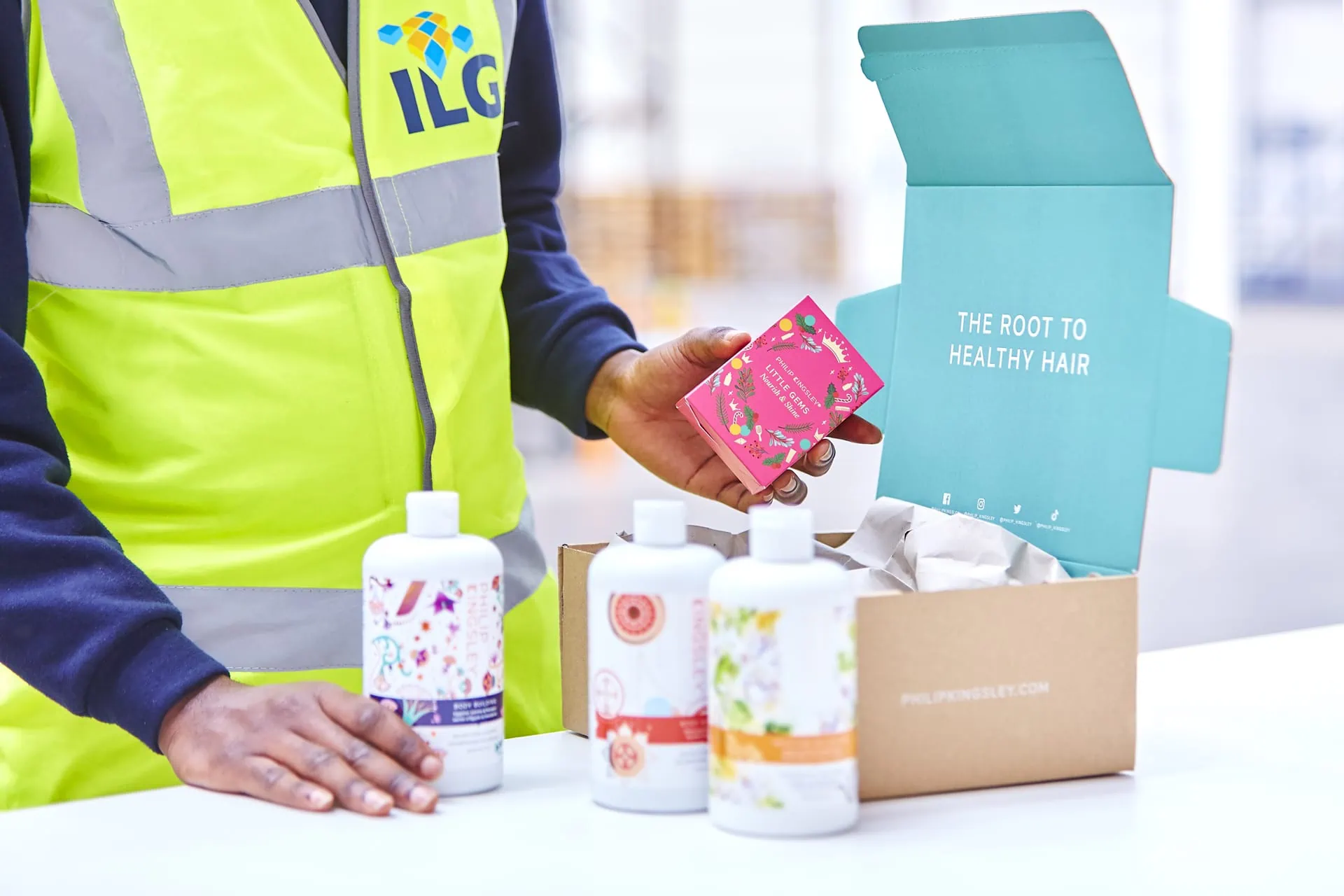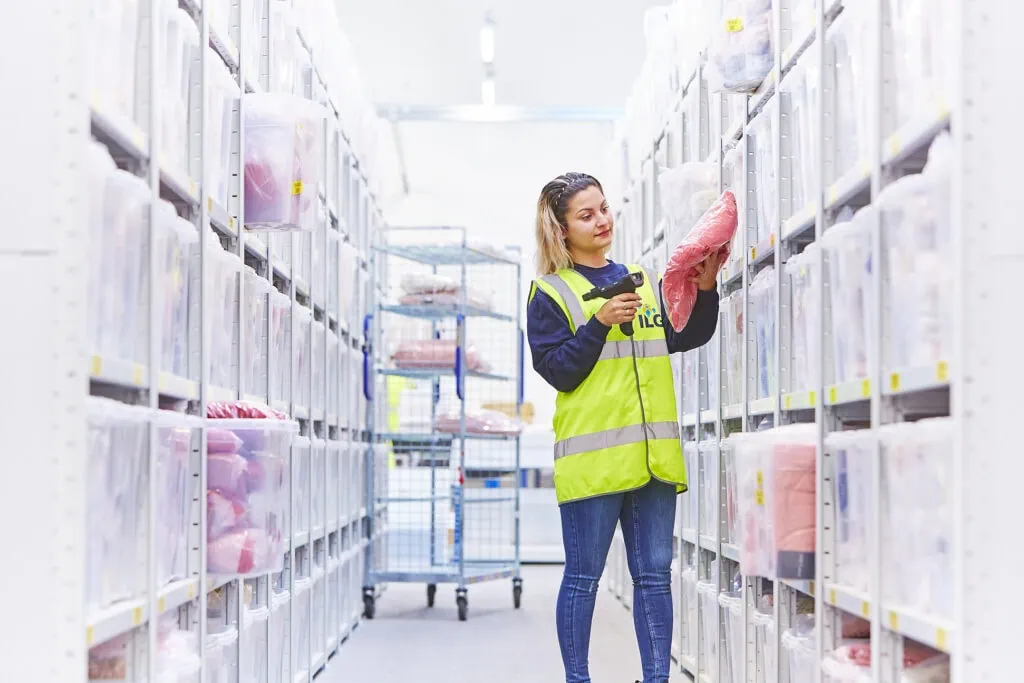
Gen-Z are characterised by open-mindedness, passion for ethical, sustainable practices and obsession with social media, more so than any generation preceding them. Currently at 26% of the world population, growing to one third by 2030, Gen-Z consumer behaviour has significant power to influence the way brands launch, market and distribute their beauty products.
Can the big established beauty players keep up with what Gen-Zers want or are they paving the way for smaller, indie competition to take over? In this article, written by a genuine Gen-Z consumer and drawing on research from The State of Fashion: Beauty report, we dig into Gen-Z shopping statistics and explore the different ways Gen-Zers are influencing how beauty brands operate and why it’s important to keep up with their dynamic, ever-changing desires.
Gen-Z Values: The Conscious Consumer
It’s no surprise that Gen-Z consumers are leading the front on sustainability and aligning themselves with inclusive, ethical and socially responsible brands. More recently, the impact of the cosmetics and beauty industry on the environment has been well reported, with beauty packaging being one of the worst plastic polluters, amounting to 120 billion units each year. For beauty brands to really land with Gen-Z consumers, they need to prove that they care about their environmental impact and that sustainability is embedded in their strategy and values. According to The State of Beauty Report by The Business of Fashion, 46% of Gen-Z consumers are willing to pay a premium for sustainable products, further proving that the sustainability of a brand is an increasingly important purchasing factor. Being a sustainable brand doesn’t necessarily just mean having recyclable packaging. Brands should take into account the whole supply chain – and partnering with a sustainable 3PL is one step they can take to prove their commitment to the environment.
Sustainability isn’t the only thing that interests Gen-Z more than previous generations. Social responsibility, inclusivity and diversity are also incredibly important influences on the Gen-Zer’s purchasing decisions. Sustainability and social responsibility should be key factors in beauty brands’ strategies to attract the Gen-Z consumer, proven by the fact that 45% of surveyed Gen-Z respondents said they would stop using beauty products altogether if they weren’t inclusive or socially responsible*. This could range from product diversity and diverse representation to cruelty-free and vegan options. Furthermore, close to 40% of Gen-Zers prefer gender-neutral beauty products*, suggesting brands should actively promote inclusivity by featuring diverse representation in their product range, marketing and brand personality. By taking these steps, a beauty brand can demonstrate its commitment to sustainability, social responsibility and inclusivity, which is likely to resonate strongly with Gen-Z consumers and contribute to long-term loyalty and positive brand reputation.
Blending Online and In-Store Experiences
In a generation that’s shaping the future of technology and online shopping through the use of social media and online activity, it might come as a surprise to know that 41% of Gen-Zers cite brick and mortar stores as an important channel when learning about and buying new beauty products*. Perhaps this suggests that promoting and selling solely on social media or e-comm will only get brands so far. Beauty brands should consider expanding their distribution reach, going beyond e-commerce to reach the ’bricks’ consumer, highlighting the importance of an omnichannel retail strategy.
Not only do Gen-Zers expect to discover and shop in physical stores, but the experience they have and service levels they receive are highly important when they do. Recently we have seen the growth of digital technology in beauty with skin analysis tools, digital foundation shade matchers and AI try-on apps – but are these online tools enough? With 85% of Gen-Z consumers citing that services such as customised skin and hair diagnostics and pleasant store environments are very strong purchasing triggers*, beauty brands need to come up with innovative ways to offer personalised in-person experiences. In comparison to millennials and other older generations, who are most likely to research and buy online, a brand is more likely to reach Gen-Z with a more multi-faceted approach. Brands already offering examples of instore experiences include Face Gym with its Studio Workouts, an innovative toning facial offered at its concessions in department stores like Selfridges. Kiehls offers complimentary In-Store Healthy Skin Consultations to give personalised advice and product demonstrations. Both have customised ways to appeal to Gen-Z consumer behaviour, add value to their experience and to enhance their loyalty to the brand. By bridging the gap between digital and physical spaces and curating personalised, in-store moments, brands can captivate and retain Gen-Z consumers in an ever-evolving beauty landscape.
Research-Driven Beauty Choices and Brand Loyalty
Whereas previous generations perhaps used to believe that high price equals high quality in beauty, less than one in five Gen-Z consumers consider premium brands to be more effective than more affordable options*. This behavioural characteristic of Gen-Z leaves space for the more affordable brands to shine and target this emerging generation who are much more open-minded and willing to try new things without the preconception that higher price means higher quality. That said, nearly 50% of the generation commented that they are willing to pay a premium for a beauty product if the quality is high*. This means brands must prove the quality of their products to charge high prices, rather than rely solely on reputation or perception that high price means good quality product. To Gen-Z, the money must be worth spending and with young adults up to 26 years old a part of this generation, it makes sense that they would shop with value-for-money in mind. If the price point is right, worth the money and the product works, Gen-Z consumers are some of the most loyal to the beauty sector, with 60% willing to keep buying from their favourite brands*.
Not only does this generation have a strong standpoint on price, but nearly 50% say they extensively research beauty products, looking at ingredients, benefits and reviews before they commit to buying them*. Gen-Zers are looking for a transparent brand, and they want to know what they are using on their skin and if it will work. It’s easy for this generation to turn to YouTube, TikTok and Instagram to find reviews with almost 75% following influencers on social media and 92% saying one of their beauty or wellness routines have been influenced by an online creator. So creating trust and ensuring reviews and benefits can be found through social channels are key.
How to Cater to Gen-Z Consumers
In order to effectively cater to the Gen-Z consumer, beauty brands must undergo a transformative shift in their approach. This generation, born into the digital age, values authenticity, sustainability, and inclusivity above all else. To appeal to Gen-Z values beauty brands should:
- Prioritise transparency in their products, emphasising ethical sourcing while reducing their environmental impact
- Offer customisable products and inclusive shade ranges to cater to a diverse customer base is essential
- Brands should align with social causes and engage in purpose-driven marketing, demonstrating their commitment to values that resonate with Gen-Z, such as social justice and inclusivity
- Gen-Z seamlessly navigates between online and offline worlds, so brands should ensure their digital presence is user-friendly and engaging while maintaining a strong physical and unique retail presence
By embracing these principles, beauty brands can thrive in an era where Gen-Z’s values shape the industry’s future.
ILG is geared up to support beauty brands looking to attract the Gen-Z consumer with our sustainable fulfilment service and experience in delivering the perfect purchase experience, whether that’s in-store or online. Find out more about our omnichannel beauty fulfilment services or get in touch with ILG today.
*Source: The State of Fashion: Beauty, produced by Business of Fashion and McKinsey & Company
Contact Us
More insights >
How to Manage Your Stock with SKU Numbers: Best Practice Guide
If you’re an e-commerce business, efficient inventory management is essential – and one important part of this is understanding SKU numbers.
ILG is a Finalist for Best Logistics Solution at the BeautyMatter 2025 Awards!
We’re thrilled to announce that for the third year in a row, ILG is a finalist for ‘Best Logistics Solution’ at the BeautyMatter 2025 Awards!

